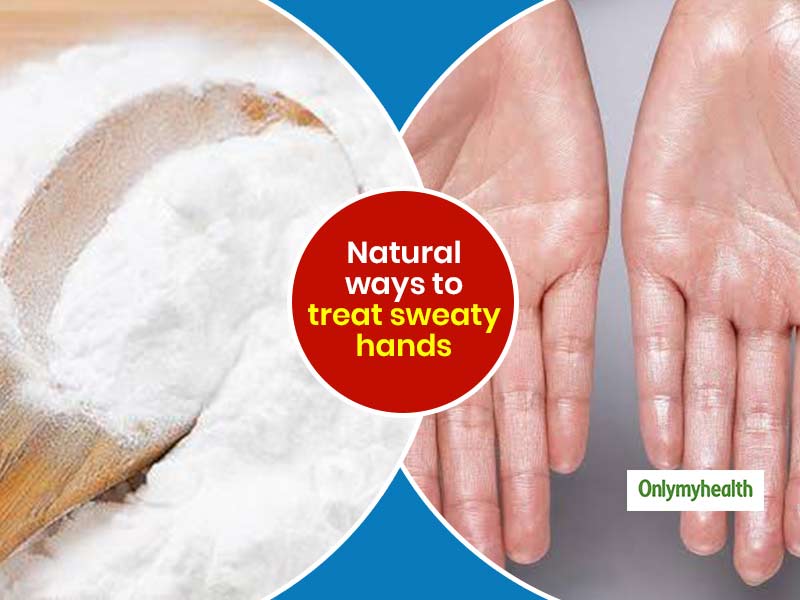Comprehensive Overview to Sweaty Hands Treatment: Proven Dermatology Approaches
Comprehensive Overview to Sweaty Hands Treatment: Proven Dermatology Approaches
Blog Article
Comprehending the Source of Excessive Sweating and Its Influence on Every Day Life
Excessive sweating, also called hyperhidrosis, is a condition that impacts a substantial portion of the population, yet its underlying reasons and effects on daily functioning stay somewhat enigmatic. While it is generally recognized as a physiological action to control body temperature level, the triggers for extreme sweating can differ commonly amongst people, incorporating not only physical elements yet also emotional and psychological elements. Additionally, the effect of this problem extends beyond mere pain, frequently influencing social interactions and overall quality of life. By delving into the origin creates of hyperhidrosis and discovering its complex impacts, a deeper understanding of this pervasive concern can be obtained, clarifying the intricacies that people facing extreme sweating navigate on a daily basis.
Physiology of Sweat Glands
The law of sweat production, a critical physiological procedure, is largely controlled by the activity of sweat glands dispersed throughout the human body. Sweat glands are categorized into 2 major types: eccrine and apocrine glands.
When the body temperature increases, either as a result of physical activity, heats, or psychological tension, the nerve system triggers the sweat glands to create sweat. This sweat is made up largely of water and electrolytes like sodium and chloride. The process of sweat manufacturing is essential for preserving the body's interior temperature level within a slim, optimal range, highlighting the vital duty sweat glands play in human physiology.
Triggers for Excessive Sweating
In recognizing the source of excessive sweating, it is important to determine the triggers that can bring about this physical feedback. Too much sweating, likewise referred to as hyperhidrosis, can be triggered by numerous variables, both physical and ecological. One typical trigger is emotional tension or stress and anxiety, which can stimulate the body's sweat glands to create more sweat than is required for cooling. Physical exertion, heats, and spicy foods are additionally understood to activate too much sweating in people susceptible to this condition. Specific medical conditions like diabetic issues, menopause, or hyperthyroidism can add to extreme sweating as well.
Furthermore, drugs such as some antidepressants, opioids, and specific supplements can additionally serve as triggers for hyperhidrosis. Recognizing these triggers is essential in managing excessive sweating successfully - Treatment for hyperhydrosis of hands. By recognizing and attending to the specific triggers that trigger too much sweating in a private, medical care suppliers can develop individualized treatment strategies to minimize this condition and improve the person's lifestyle
Medical Issue Associated
Connected with extreme sweating are numerous medical problems that can worsen this physical response. One usual problem is hyperhidrosis, a disorder characterized by extraordinarily boosted sweating that surpasses the body's thermoregulatory needs. This can manifest in focal areas like the palms, soles, underarms, or face, impacting an individual's lifestyle as a result of social embarrassment and discomfort.
In addition, endocrine problems such as hyperthyroidism, diabetes mellitus, and menopausal warm flashes can also result in extreme sweating. Hyperthyroidism triggers an overproduction of thyroid hormones, accelerating metabolism and triggering sweating. Diabetes can generate sweating episodes, specifically throughout hypoglycemic episodes when blood sugar degrees go down also low. Menopausal hot flashes, attributed to hormone variations throughout menopause, can trigger extreme and unexpected sweating, typically gone along with by flushing and heart palpitations.
Moreover, infections like consumption, HIV, and endocarditis have been connected with evening sweats, a common signs and symptom understood to disrupt rest and affect total wellness. These medical conditions highlight the varied series of underlying variables that can contribute to too much sweating, demanding detailed examination and monitoring by health care professionals.
Mental and psychological Variables

Effect on Social Communications
Excessive sweating can have extensive results on an individual's capacity to engage conveniently in social communications. The visible indications of sweat discolorations or wet patches on garments can lead to humiliation and self-consciousness, causing people to take out from social situations. This withdrawal can affect partnerships, limit social activities, and impede individual and specialist growth.
:max_bytes(150000):strip_icc()/sweaty-palms-palmar-hyperhidrosis-4691320-10512b2d428846059753b76df6dc74c2.png)
Moreover, the anxiety and self-esteem problems coming from extreme sweating can influence interaction and social abilities. People might battle to concentrate on conversations, take part in group activities, or reveal themselves confidently. This can cause sensations of isolation and solitude, as social connections end up being challenging to preserve.
Final Thought

While it is generally comprehended as a physiological reaction to regulate body temperature level, the triggers for extreme sweating can vary widely amongst people, encompassing not only physical variables however mental and likewise emotional components. By delving into the origin triggers of hyperhidrosis and discovering its complex impacts, a much deeper understanding of this prevalent issue can be obtained, this link losing light on the intricacies that individuals grappling with too much sweating navigate on a day-to-day basis.
Physical effort, high temperatures, and spicy foods are additionally understood to trigger extreme sweating in individuals Read More Here susceptible to this condition. By recognizing and dealing with the specific triggers that trigger excessive sweating in a specific, health care service providers can create individualized treatment plans to relieve this condition and boost the person's top quality of life.
Too much sweating can have profound results on a person's capacity to engage easily in social interactions.
Report this page